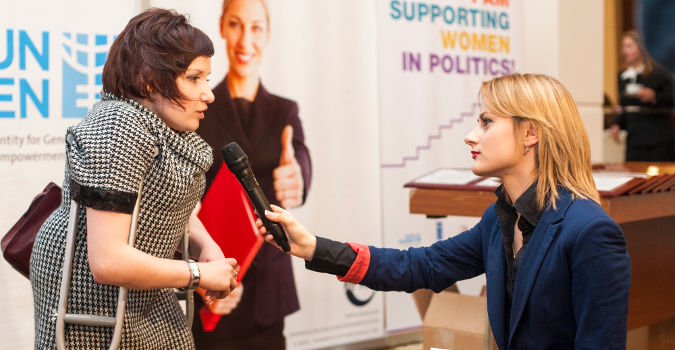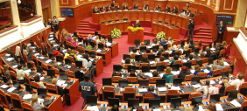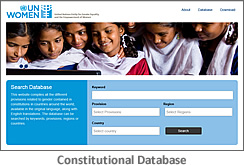Leadership and political participation

Across Europe and Central Asia, women are still under-represented in decision-making, whether it is in elected office, the civil service, the private sector or academia, despite advances in democratic governance and proven abilities of women as leaders and agents of change.
As the 2011 UN General Assembly resolution on women’s political participation notes, “Women in every part of the world continue to be largely marginalized from the political sphere, often as a result of discriminatory laws, practices, attitudes and gender stereotypes, low levels of education, lack of access to health care and the disproportionate effect of poverty on women.”
Our Approach
UN Women’s leadership and political participation programmes are guided by international commitments made to women, including the Convention on the Elimination of All Forms of Discrimination against Women (CEDAW) that upholds women’s right to participate in public life, and the Beijing Platform for Action , which calls for removing all barriers to equal participation. In Europe and Central Asia, UN Women develops programme solutions tailored to address women’s leadership and political participation, in line with the specific context of countries in this diverse region. UN Women supports increased women’s leadership and political participation in Europe and Central Asia by:
- working with governments to implement the Convention on the Elimination of All Forms of Discrimination against Women (CEDAW), support temporary special measures and develop gender-informed policies;
- supporting civil society actions to promote women’s voting rights and increase women’s political participation, leadership and representation.
UN Women in Action
Latest news
Women in Power and Decision-making
As part of UN Women's Beijing+20 campaign, this editorial package highlights how women create change through holding political office, acting as advocates and making decisions in public and private spheres. But they still lack equal representation in positions of power and decision-making.


